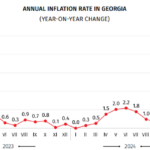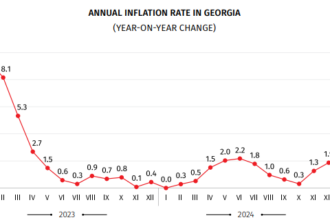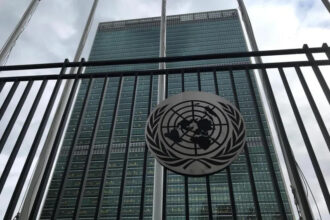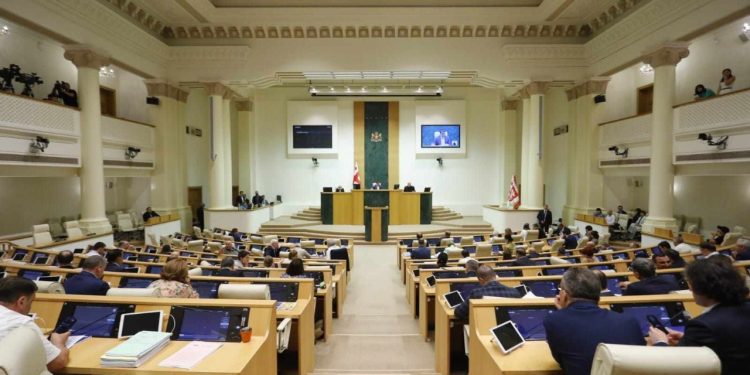Georgia’s parliament will be closed in 2023. Transparency International Georgia’s report states that the Georgian Parliament became even less accessible and transparent for members of civil society and critical press.
“The refusal to allow the person to enter the parliament and attend committee meetings was made without any specific reasons, citing only general security regulations. The Parliament has stopped releasing public information that might be used to criticize MPs.
“In response to our public information request, the Parliament failed to provide us the information that it has routinely provided over the past 10 years: a count of the speeches delivered by MPs, details of disciplinary actions taken against these MPs, complete information about the activities of the Committees.”
Key findings
The awarding of the status of candidate of the European Union by Georgia in 2023 was a pivotal moment for the country. The role of Parliament is crucial in the path to European integration.
In February 2023 members of the majority of the Georgian Dream offshoot, “People’s Power“, presented two draft laws in the Parliament. “On the transparency and foreign influence”, which was approved by Parliament in first reading. The debate over the draft laws caused considerable tensions in society. The protests continued from 2 March to 8 March. After the protests, the ruling party decided that the bills would be withdrawn. The resistance of the people and their commitment to an European path played a key role in the country’s achieving candidate status for EU Membership.
The European Commission has defined that the improvement of the implementation and oversight of the security services by parliament is one of the conditions for Georgia to be granted the status of candidate country.
Some of the nine Georgian conditions continue the 12 recommendations made by the European Commission June 2022 while others are entirely new. Georgia has fully implemented three of the twelve conditions.
Statistics
In 2023, 12 ministerial sessions and 6 interpellations took place.
Six times, the accountable person was summoned by the committee (in five cases, the initiator of the summons was the opposition and in one case the committee). The accountable person was present at the session five times.
The extension of the deliberation period was used 111 times in total for 73 legislative packages (2455 bills).
The number of questions sent to ministers or accountable persons decreased. 47 MPs sent 2,997 questions, 77 of which were from majority MPs and 2,920 from the opposition. [1] Tinatin Bokuchava, an opposition MP, sent the most questions. She had 582.
Three requests for the creation of a temporary investigation commission were made to the parliament. All three were initiated by opposition. In none of these cases was an investigative commission created.
The activities of members of Parliament
The 98 members of parliament were allocated a total of 1,836,033.17 GEL for overseas business trips.
Irma Zvaradashvili initiated the most bills (105 bills), and Aleksandre Rakviashvili (74) was the highest in the opposition.
Cezar Chocheli, from the opposition, missed the most plenary sessions (23 absences), followed by Eliso Bolkvadze from the majority (13 absences).
Mariam Lashkhi, from the majority, missed the most plenary sessions (16 times) without valid reason.
[1] In the year 2022, 52 Members of Parliament asked 5093 questions.
Important Legislative Amendments
The following laws are considered progressive: a new law on the protection of personal data and an amendment to anti-corruption legislation that requires prosecutors to disclose their asset declarations.
The following legislative amendments are evaluated negatively: an initiative to prohibit temporary constructions at gatherings and protests, modifications in broadcasting regulations regarding the management of hate speeches, and amendments of accountability and oversight provisions within the Rules of Procedure”, according to the statement.
Read More @ georgiatoday.ge













